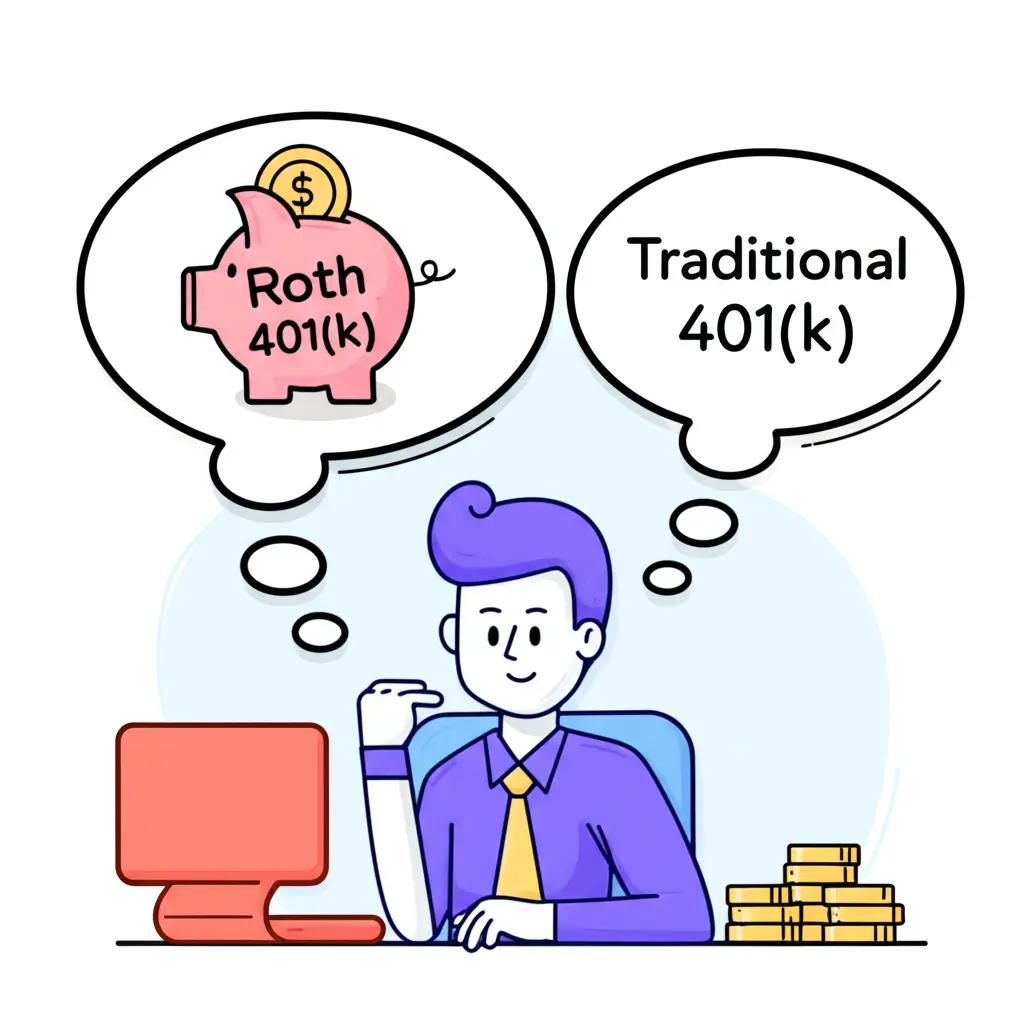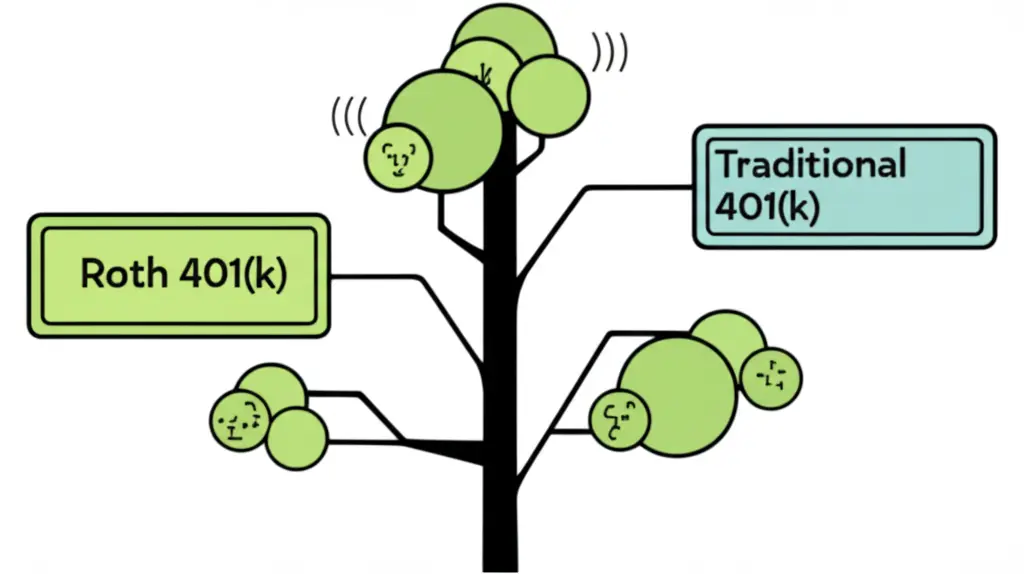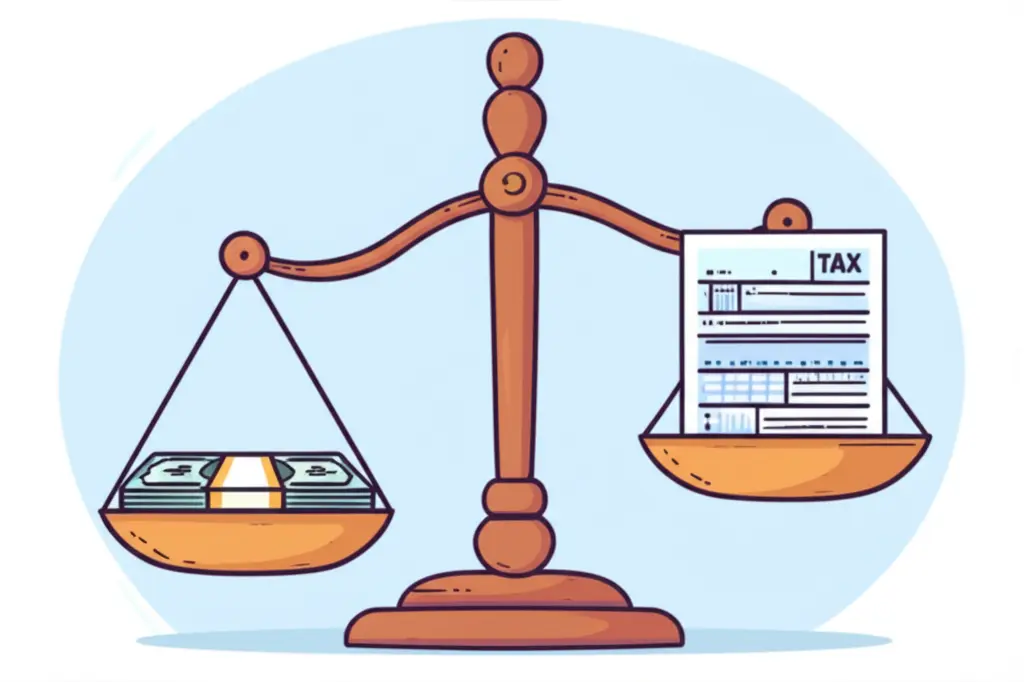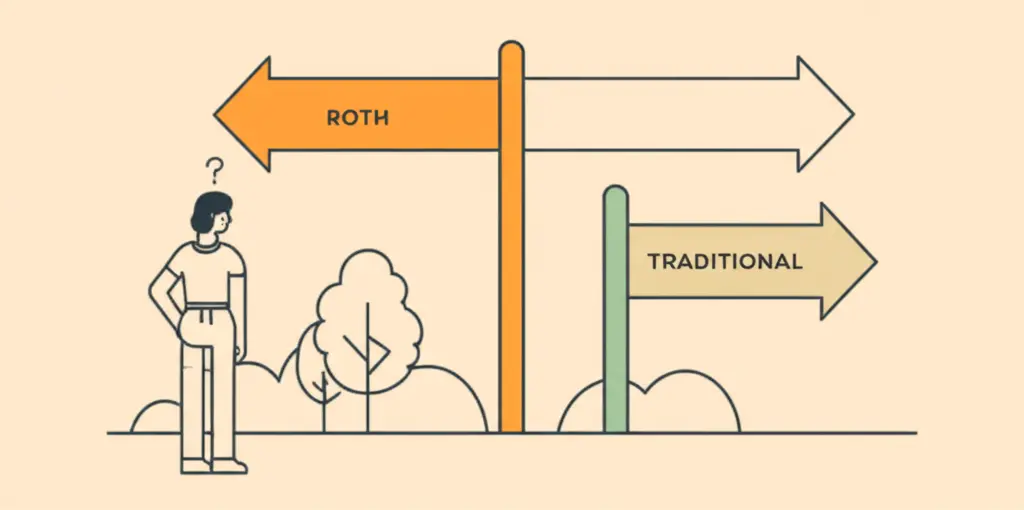Decoding Your 401(k): Roth vs. Traditional
Discover the key differences between Roth and traditional 401(k) plans to make the optimal choice for your future.

Deciding between a Roth 401(k) and a Traditional 401(k) can feel like standing at a crossroads on your financial journey. Trust me, I've been there, and it can seem daunting. Both options have their perks, but which one aligns with your retirement planning goals? By considering your current income, tax strategy, and future expectations, you can make an informed choice.

Roth vs. Traditional: The Basics
Let's start with the basics. A Traditional 401(k) allows you to contribute pre-tax dollars. This means your contribution is deducted from your paycheck before taxes, potentially lowering your taxable income now. However, you pay taxes when you withdraw funds during retirement.
Conversely, a Roth 401(k) is funded with after-tax dollars. So, you pay taxes upfront, but your withdrawals during retirement are tax-free. For many folks, this is the more appealing option!

Factors to Consider
- Current Income and Tax Bracket: If you're currently in a higher tax bracket and expect to be in a lower one during retirement, a Traditional 401(k) might save you money on taxes.
- Future Expectations: If you expect to be in a higher tax bracket when you retire, the Roth 401(k) could be the better bet because withdrawals are tax-free.
- Contribution Limits: Both plans have contribution limits. Check the latest IRS guidelines to ensure you’re maximizing your contributions.
Why Should You Care?
Long-term planning is crucial for your financial health. The choice between a Roth 401(k) and a Traditional 401(k) isn't just about today’s taxes. It’s about building a strategy that aligns with your future—whether that’s aiming for tax-free retirement income or optimizing your cash flow now.

Sum It All Up
To wrap it up, both the Roth and Traditional 401(k)s offer unique benefits. Reflect on where you want your financial future to go, consider your current and expected tax situations, and don't hesitate to seek professional guidance if needed. What do you think is your best route for a worry-free retirement?




